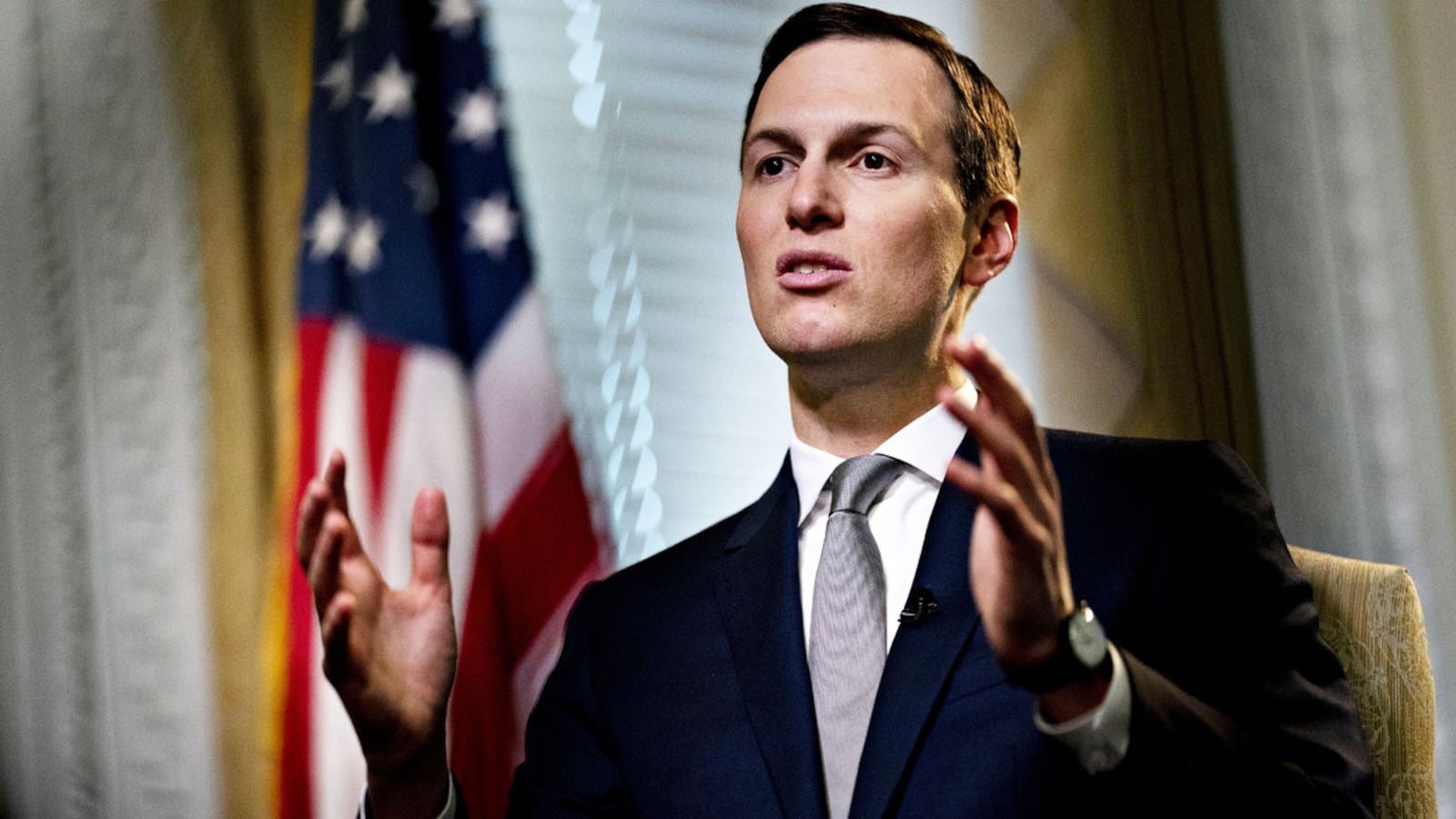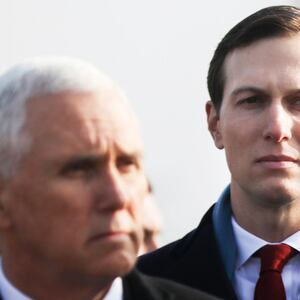In 2016, at the tender age of 35, Jared Kushner discovered America.
Traveling with his father-in-law Donald Trump as he campaigned for president, Kushner had the eye-opening opportunity “to really see the country,” as he later recounted to CNN’s Van Jones.
On this foray into the unexplored expanse between the coasts, Kushner was surprised by what he observed. “There were a lot of issues that I thought about being in New York… but when I’d go out to the country, I’d hear opinions that were differing from what a lot of the people in New York thought were the right prescriptions for them.”
Presumably, Kushner has become better acquainted since then with the experiences of Americans who dwell outside of his lifelong realm of mansions, penthouses, and boardrooms. We should all hope that is the case because Kushner now has enormous influence over the vital “prescriptions” that shape many facets of our lives, including a leading role in combating the coronavirus crisis. As Trump’s 2020 campaign manager Brad Parscale recently told Time, other than the President, “Nobody has more influence in the White House than Jared. Nobody has more influence outside the White House than Jared.”
Unfortunately, for so many of Kushner’s tenants in his former occupation as a Manhattan-based real estate mogul, his awakening to the struggles of regular Americans came too late. In fact, as we show in Slumlord Millionaire, the episode we directed about Kushner for the Netflix documentary series Dirty Money, Kushner was not just oblivious to the struggles of his tenants—he was the perpetrator of them.
In New York City, the Kushner playbook was to buy buildings with rent-stabilized tenants and then to harass them systematically with maddening construction until they moved out. Then Kushner Companies, the family real estate firm of which Kushner was CEO from 2008 until January 2017, flipped the buildings to market rate and sold them for a significant profit.
In the vicinity of Baltimore, a city President Trump disparaged last September as a “rodent-infested mess”, the Kushner model was even more insidious. In Maryland, Kushner Companies owns and manages thousands of low- and middle-income rental units over more than a dozen housing complexes, which investigative reporter Alec MacGillis collectively dubbed “Kushnerville” in a 2017 exposé. Unlike in New York City, there wasn’t an economic incentive to push out Kushnerville’s tenants. Instead, Kushner Companies maximized profits by spending minimally on the units’ upkeep, while gouging the tenants with a slew of fees, many of them dubious, on top of their rent.
It wasn’t just the residents of Kushnerville who were subject to these predatory practices; it was the former tenants of the complexes too. When Kushner Companies bought these buildings, they went into the files of the previous owners looking for money to collect. One of these former tenants was Kamiia Warren, a single mother of three, who was working as a home health aide while also attending school.
Kushner Companies relentlessly pursued Warren for $3,014.08 for breaking her lease with the former owners. However, Warren didn’t owe the money. She had received permission to move out early, but years after vacating the property she no longer had the paperwork to prove it and didn’t know how to defend herself in a court system Kushner Companies expertly weaponized against her. Her Kafkaesque ordeal resulted in a legal judgment against her of nearly $5,000. To collect, three days before Christmas Kushner Companies began garnishing her paychecks. Then it zeroed out the $900 in her bank account, leaving her destitute.
As if that weren’t heartless enough, Kushner Companies requested that the court approve a body attachment for Warren. A body attachment is a civil arrest warrant that enables the local sheriff to incarcerate debtors, essentially for the crime of being poor. Kushner Companies was not alone in employing this draconian tactic, but it employed it far more aggressively than any other real estate firm in the state.
Fortunately, MacGillis’s article resulted in Warren getting pro bono representation, and once she had legal counsel in her corner Kushner Companies immediately caved and eliminated her debt. Why had Kushner Companies been so harsh in its dealings with vulnerable people like Kamiia? Kushner’s CFO told MacGillis the firm had a “fiduciary obligation” to its partners to maximize revenue. While this explanation may be morally bankrupt, it is perfectly in line with how most businesses operate, which is exactly the concern Americans should have in evaluating Kushner’s approach to policymaking.
Concerns about conflicts of interest between Kushner’s opaque network of financial interests and the policies he is driving from the West Wing have abounded since the outset of the Trump administration. The coronavirus crisis has brought this dynamic into particularly sharp focus.
They first flared up over Oscar, a health insurance company co-founded by Joshua Kushner, Jared’s brother. On March 13, the day Trump finally seemed to acknowledge the severity of the pandemic by declaring it a national emergency, Oscar, which was formerly jointly owned by Jared and Joshua, launched a web portal to provide a number of coronavirus-related services. Though there is no evidence that Oscar is profiting from the administration’s approach, the synchronicity of the timing, along with the fact that a graphic displayed at Trump’s Rose Garden press conference resembled one in Oscar’s media release announcing its portal, prompted questions about inappropriate coordination.
Then, on Monday, Crain’s New York reported that the paralysis of commerce caused by the pandemic may force Kushner Companies’ Times Square retail space into default. The next day President Trump tamped down the medical community’s insistence on social distancing in favor of restarting the economy on an arbitrary, accelerated timeline. Kushner, who initially advised the president that the media was exaggerating the threat of the virus, is serving as a liaison between the administration and business leaders, a number of whom have agitated for a hasty return to the workplace. Trump has clearly been receptive to their lobbying at a time when his own family business, The Trump Organization, is struggling financially, with six of his seven top revenue-generating hospitality businesses shuttered.
In crafting policy is Kushner calculating the benefit to himself and his family, or is he putting the health and welfare of the American people above all other considerations?
Kamiia Warren certainly has her doubts. As she says in our film, “I’m very nervous that Jared Kushner is someone that is making decisions for our country. I firsthand know how he conducts business.”
DiMauro and Pehme co-directed and produced Slumlord Millionaire, the episode about Jared Kushner in Netflix’s documentary series Dirty Money.







